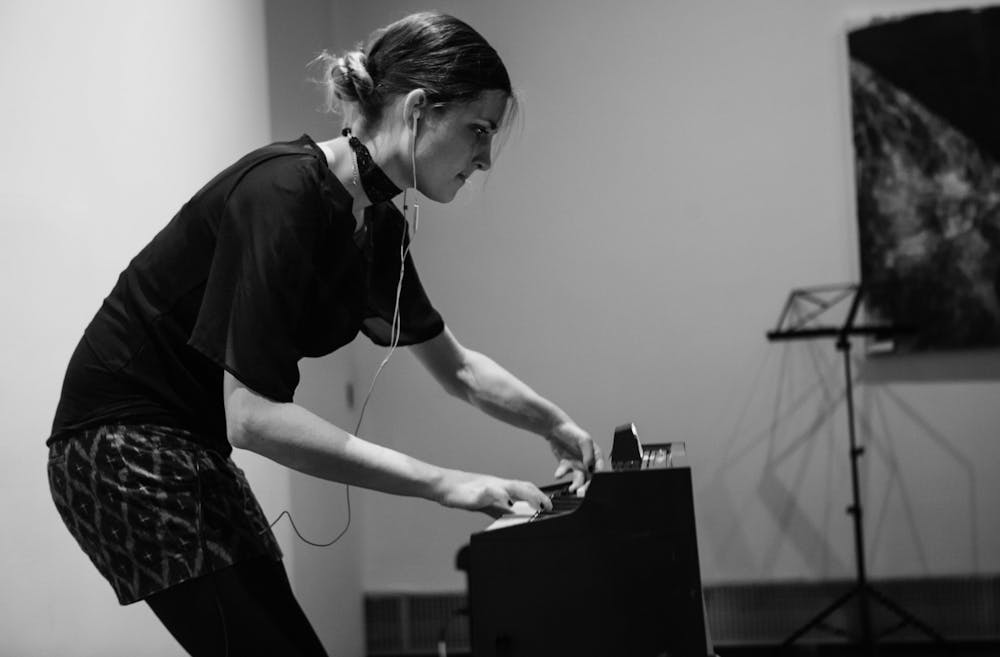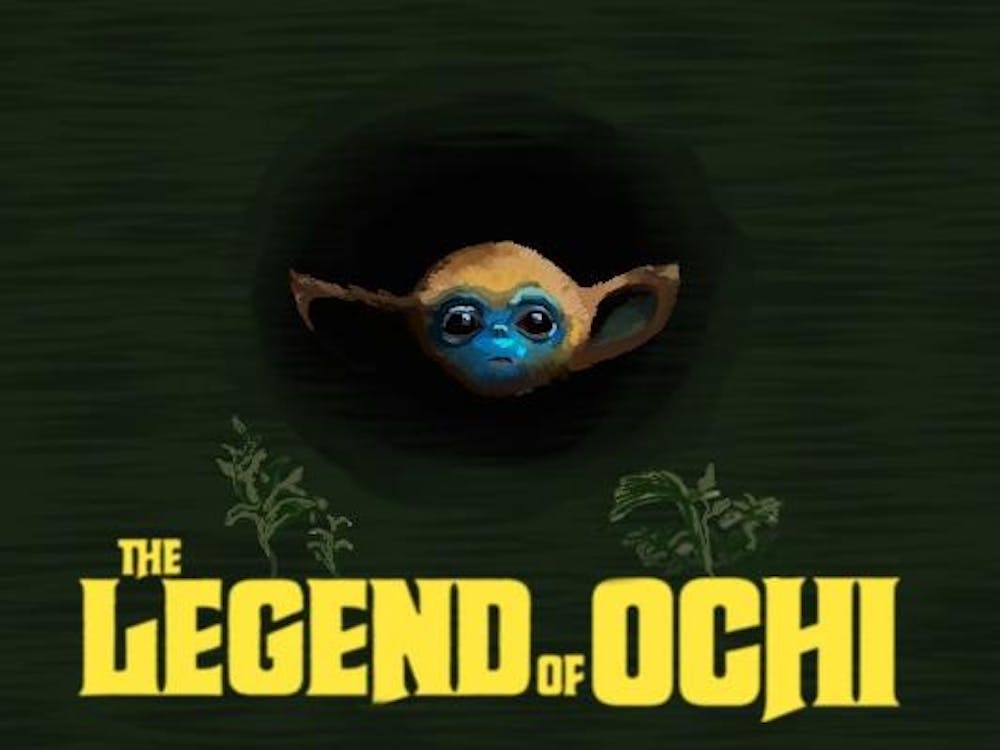On the precipice of the release of her second album, Molly Joyce opens up about the journey of her artistry and how the University is aiding her in her exploration. The first-year music doctoral fellow has studied music composition at Juilliard, Yale and New York University. Now, the musician calls Charlottesville home.
“My sister went to U.Va. actually,” Joyce said. “My mom did her medical residency here … and my family moved [to Charlottesville] about a year and a half ago.”
Not only does the U.Va. run deep in the family bloodline, but the music doctoral program offers something unique to Joyce’s interest, which encourages her to think outside the box.
“[The program] has a more technology focus … which was super valuable for me,” Joyce said. “I’m always looking for creative ways to incorporate assistive technology, accessibility technology and whatnot.”
For Joyce, her assistive technology need is personal. After a car crash impaired her left arm twenty years ago, Joyce had sustained a mobility disability — though she avoided calling herself disabled. It was not until her masters program at Yale that she started to accept her identity.
“It’s definitely been a journey from denying my disability to really embracing it,” Joyce said. “I think it’s come along with the expansion of my artistic practice.”
Joyce, who is a lifelong performer, searched for an instrument that would not hinder the limited mobility of her left arm. In that search, she found her instrument, a toy organ. The instrument fits her body. With piano keys on the right and chord buttons on the left, Joyce can use her impaired left arm to press the cords and her right arm to play the keys on the organ. Without worrying about if the notes will be right, the artist can more easily focus on what she does best — create.
In her newest album, “Perspective,” Joyce focuses her attention on the disabled community. This project features Joyce overlaying recordings of testimonials on top of her music, truly putting anonymous disabled voices at the forefront of her music. She wants to make her work more representative of the disabled community, but it’s not always as easy as it sounds.
“I was always struggling with the best ways to [showcase disabled voices] ethically and honestly,” Joyce said. “You know, not forcing my music on it or my perspective on other people’s viewpoints.”
Michael Hammond, the producer of “Perspective,” was elated by Joyce’s decision to head in a new direction for her next project. He has worked with Joyce on multiple projects, including her first album.
“I thought it was a brilliant idea,” Hammond said. “The whole idea of presenting these broad, open-ended topics … and letting the interviewees respond however they wish.”
After a fellowship combining art and social justice, Joyce was inspired to make “Perspective” interview based. Much more a listener than a talker, Joyce was excited to engage participants about what words like interdependence, care and weakness meant to them. The hope was to elicit interesting answers. Originally, she planned to film her participants, but their answers proved more insightful than she could have imagined. Each participant’s answers resonated with Joyce and Hammond.
“The thing that resonated most was just hearing all these different truths juxtaposed,” Hammond said.
One single off the album, “Weakness,” particularly touched Joyce. Each participant had a different connection to the word. Some participants were born with disabilities and others — like Joyce — had acquired them. She related to one participant in particular.
“Her answer ‘cure,’” Joyce said. “That really resonated with me … You think how nice it would be to go back, but you’re also like, I don’t know, would you just be [a] totally different person than you are? Or not, you know, yourself in a way?”
Her 2020 debut album, “Breaking and Entering,” was highly intrapersonal. Joyce questioned what it meant to enter into her newfound identity after she was inspired by her studies in graduate school. Here, she first explored what it meant to create and perform with a disability that impacted her ability to play music.
“[I was] thinking about that process with one’s body,” Joyce said. “Asking where the lost movement and nerves went in an artistic sense.”
With the production of her newest album — and her long journey to embracing disability — Joyce hopes everyone will consider how they relate to these concepts and think about it a little differently than they had before listening.
“I think it’s been an interesting personal confrontation for myself,” Joyce said. “I think opening that up can be really useful for everyone really, and just a valuable lesson from the disability community overall.”
A talented composer, Carnegie Hall, Americans for the Arts and the National Gallery of Art have all commissioned Joyce for her work. She has composed pieces for chamber orchestras, operas and dance performances all over the world. With a plethora of honors and awards under her belt, the musician is crafting music that is more representative of her evolution as an artist.
In reflecting on her career as a composer and musician, Joyce offered advice for aspiring musicians.
“Perseverance,” Joyce said. “Myself as well. Not being deterred too easily.”
In her studies at the University, Joyce says the music department has been very open to disability perspectives. Her collaboration with students and faculty has been exciting for her development as an artist. Additionally, she highlights the Disability Action Committee which is focused on eliminating “physical, technological, and attitudinal barriers” for students at the University.
Joyce’s album — released by New Amsterdam Records — dropped Friday, October 28th. Her past albums and LPs can be found on Spotify and Apple Music.







